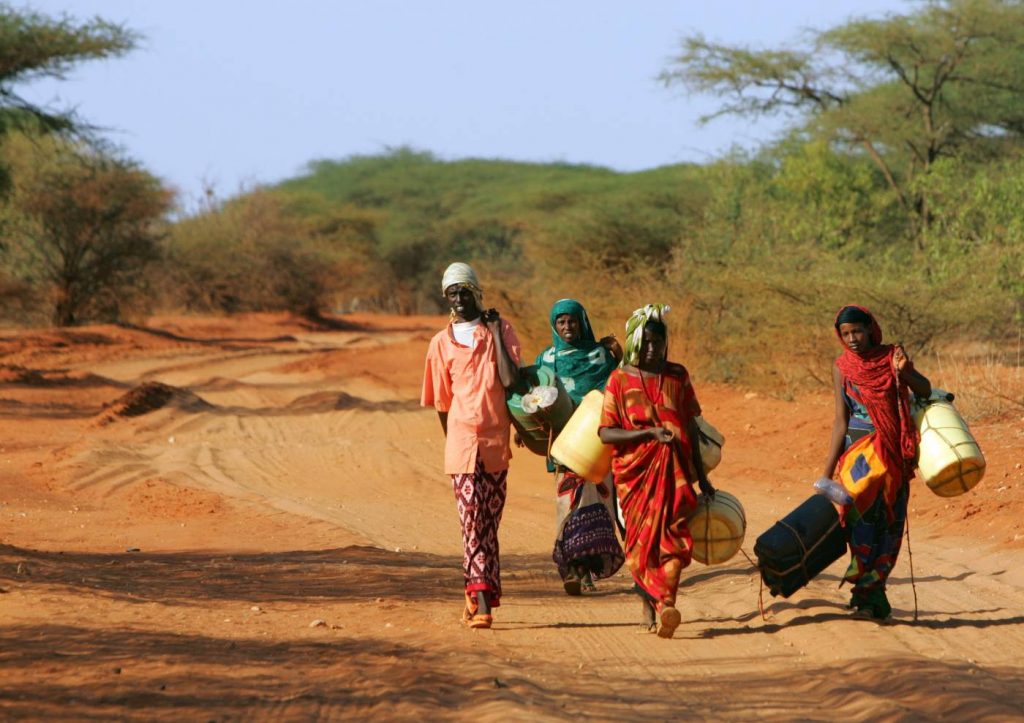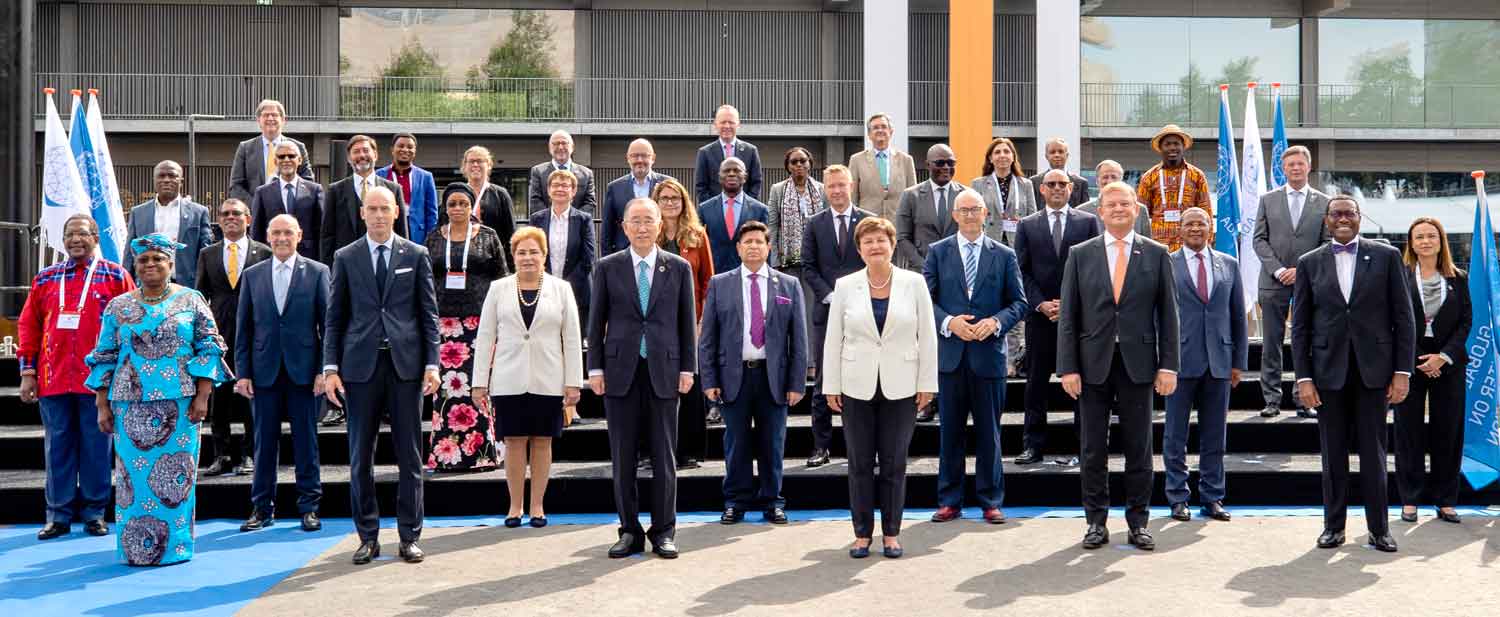Walking through Glasgow you’d be forgiven for thinking the pandemic is over. Motorcades carrying world leaders are bustling for space as armed bodyguards wrestle to showcase their individual and state prowess in Scotland’s capital. The port resembles a classy exhibition showcasing the most luxurious yachts the world has ever seen, full of many rich business people eager to make a statement echoing their “progressiveness” and “care for humanity.”
All this activity marks the opening of the 26th session of the United Nations Framework Convention on Climate Change Conference of the Parties, popularly known as COP26. No matter where you stand on the climate change topic, we can all agree that the world is experiencing one of the hottest years in record. And like many other global problems, the continent of Africa is bearing the greatest strain, despite contributing less than 5% of the world’s greenhouse gas emissions.
The continent is also the most vulnerable to the effects of climate change, due to its low adaptive capacity resulting from financial and technological limitations, and over reliance on rain-fed agriculture. In the drought-prone sub-Saharan African countries, the number of undernourished people has increased by 45.6% since 2012 according to the Food and Agriculture Organization of the United Nations (FAO). It’s much worse in countries like Malawi which rely on rain for 92% of their water needs.
Agriculture is the backbone of Africa’s economy and accounts for the majority of livelihoods across the continent. Africa is therefore an exposure and vulnerability “hot spot” for climate variability and change impacts. The African Climate Policy Center projects that the Gross Domestic Product in the five African subregions would suffer significant decrease as a result of a global temperature increase. For scenarios ranging from a 1°C to a 4°C increase in global temperatures relative to pre-industrial levels, the continent’s overall GDP is expected to decrease by 2.25% to 12.12%. West, Central and East Africa exhibit a higher adverse impact than Southern and North Africa.
COP 26 aims at finally finding a binding imitative to these problems. World leaders face two choices in Glasgow, Patricia Espinosa, head of the U.N. climate office, declared at the summit’s opening: They can sharply cut greenhouse gas emissions and help communities and countries survive what is becoming a hotter, harsher world, Espinosa said. “Or we accept that humanity faces a bleak future on this planet.”
“It is for these reasons and more that we must make progress here in Glasgow. We must make it a success.”
African countries can no longer remain voiceless in the climate change narrative. According to the International Monetary Fund (IMF), the region loses over $520 million in direct economic damages every year as a result of climate change since the beginning of this century. The continent is also witnessing a higher rate of warming than the global average of 0.15°C per decade between 1951 and 2020.
The United Nations is using a talking dinosaur to urge poor African nations to not use fossil fuels while providing information to global elites about which airports in which they can land their private jets for next week’s climate change meeting pic.twitter.com/EolYI97c2t
— Michael Shellenberger (@ShellenbergerMD) October 30, 2021
“It’s important for us to note that our contribution to emissions is less than 5% as a continent, but we are facing the wrath of what the rest of the world is doing in the environment, which is why we’re having this conversation, Maggie Mutesi, the Managing Editor of Mansa Media Africa said.
“From where I’m sitting in Dakar, Senegal, the impact is starting to be felt.”
“
The World Bank recently released a report about climate migration which said about 86 million Africans would be forced to migrate within their own countries by 2050. “We know we’ve seen people migrate from rural areas to urban centers for opportunities, or out of their countries, but this is them being forced to leave their villages because of floods, because of the effects of climate change,” Maggie Mutesi added.

The COP26 summit is expected to build upon the goals of the Paris Agreement and the UN Framework Convention on Climate Change.
The Paris Agreement came into force in 2015, and it aims at limiting global warming to well below 2°C, preferably to 1.5°C compared to pre-industrial levels. In the agreement, African countries were promised financial and technical support to help in their mitigation and adaptation efforts, due to their low levels of greenhouse emissions. Some countries like Gabon take in more carbon dioxide emissions than they emit, making it a reliable counter balance for more industrialized nations like China, which emits 25% of global emissions.
The G20 promised to raise $100 billion annually for these initiatives, but the pledge has fallen short by at least $20 billion since 2018.
“One sad thing, but that is a big reality is that when we look at all these developed countries, they built those economies using the developing countries. So they extracted a lot of things, a lot of minerals,” Dumi Jere, Founder and Managing Partner of Talanta said.
“They used the developing countries to build their own economies and that’s how they managed to grow to developed countries. Now in an effort to make up for that, I don’t want to use the word atrocity, but then they promise that we are going to find the need for climate change.”
As world leaders and experts come together to make the usual pledges of cutting global emissions by 2050 and shifting to green energy, the historical experience and suffering of Africans have to be taken into account. Otherwise, the divide is only going to grow wider and wider.
(This is a feature from the Weekly Beat podcast posted on Monday, November 1st, 2021. You can listen to the podcast by clicking on this link https://open.spotify.com/episode/0YvAxeValLJipzCiaJuTf9)

